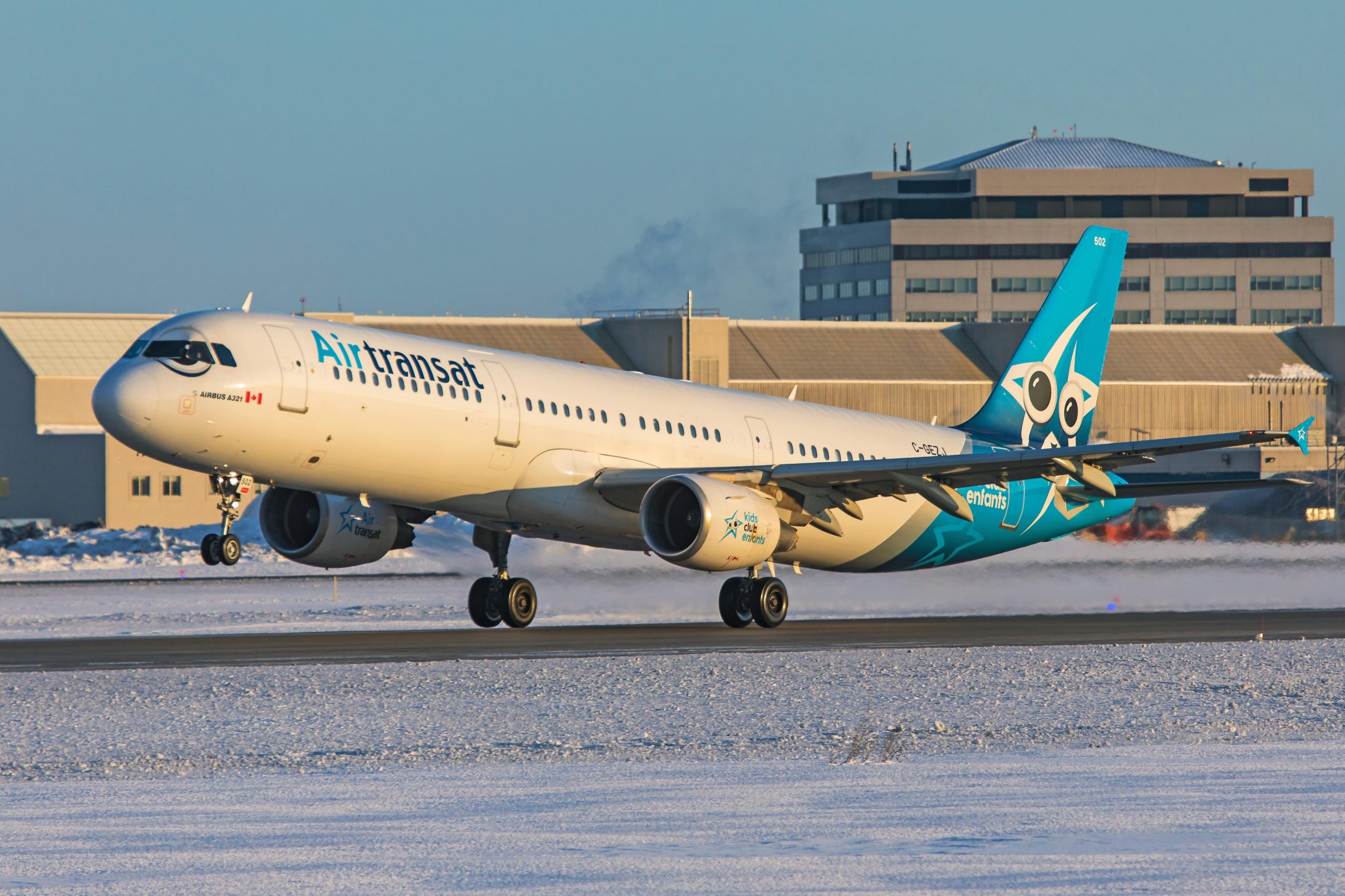
How Do Low-Cost Airlines Make Tickets So Cheap?
The likes of Ryanair, easyJet, and Southwest are some of the most successful airlines in history, with the former consistently…

An Air Transat A321 featuring a special “Kids Club” sticker on its livery. (Photo: AirlineGeeks | William Derrickson)
Following two years worth of debate and speculation, the Air Canada and Air Transat merger is officially off the table. Both parties agreed to terminate the Arrangement Agreement and will go their separate ways following nearly two years of attempting to merge. The deal was originally constructed in June 2019 with revisions in the agreement occurring in August 2019 and October 2020 before being terminated on April 2nd.
According to Air Canada, the airline will pay $12.5 million to Air Transat in a termination fee and will wave all merger fees should an Air Canada-Air Transat merger occur reappear on the table. The airline points out the European Commission’s challenge to the merger as a consequence that led to the dropped merger.
In its press release, Air Canada specifically mentions that international competitiveness and stakeholders would decline after the European Commission’s rejection of the merger. The flag carrier will instead focus its energy towards recovery as the Canadian market recovers from the effects of COVID-19.
In March, the European Commission was concerned about the Canadian market as the merger of Air Transat and Air Canada would reduce the number of Canadian flagged carriers flying to Europe from three to two. The commission noted that the severe amount of overlap in the Air Transat and Air Canada route map would give the Canadian flag carrier over 50% of the Canadian market share and become dangerously close to just outright dominating the market and choking out the remaining competition.
Competitor WestJet was also quite vocal in the merger, coming out strongly against the merger in mid-February when the Government of Canada was on pace to approve the merger. WestJet President and CEO Ed Sims said the deal was “a blatant disregard for all Canadians who believe in healthy competition” and that “it is hard to imagine a deal as anti-competitive in any industry where the number one player buys number three without meaningful remedies.”
Going forward, Air Canada will continue to work on its COVID recovery strategy as the airline makes strides to bring its route map back online. The airline can also continue to restructure its Air Transat competitor, Air Canada Rouge, which operates on a similar business model to that of Air Transat and lost its European-going flagship with the termination of the Boeing 767-300ER from the fleet.
As for Air Transat, the airline’s parent company Transat A.T. can now swap to ‘Option B’ and begin finding ways to keep the leisure carrier afloat. Transat Executive Jean-Marc Eustache had previously noted that the dealt with Air Canada had taken priority and prevented the company from engaging in alternative deals.
Living off of leisure travel and stuck with closed borders, Air Transat has found it difficult to keep aircraft moving with passengers because of the limitations of its business model. The company has noted its desperate need for cash to continue operations in the current environment and hopes that the pent-up demand for travel can help fill planes once the pandemic begins to resolve itself. The airline currently operates a fleet of 38 aircraft to 76 destinations, including a mix of widebody Airbus A330s and narrowbody A320 family models.
Although Ian McMurtry was never originally an avgeek, he did enjoy watching US Airways aircraft across western Pennsylvania in the early 2000s. He lived along the Pennsylvania Railroad and took a liking to trains but a change of scenery in the mid-2000s saw him shift more of an interest into aviation. He would eventually express this passion by taking flying lessons in mid-Missouri and joining AirlineGeeks in 2013. Now living in Wichita, Kansas, Ian is in college majoring in aerospace engineering and minoring in business administration at Wichita State University.
Receive a daily dose of the airline industry's top stories along with market insights right in your inbox.

The likes of Ryanair, easyJet, and Southwest are some of the most successful airlines in history, with the former consistently…

Given that the majority of passengers traveling on the big Middle Eastern airlines are connecting, these airlines offer stopover packages…

The concept of an “airline” is a familiar one: a single company operates specific aircraft to specific places, either regularly…



